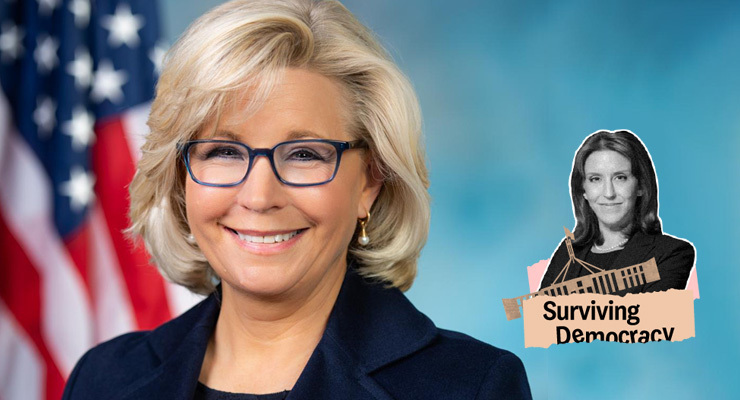
Liz Cheney is my hero. On positions of policy, I disagree with her almost 100% of the time, but I see her as one of the first moral heroes of this millennia. A highly principled woman willing and able to set aside every one of her personal interests to do what’s right for her country.
What pains me as an ethicist is the difficulty those with whom I do agree on policy have in recognising her moral leadership. Either because of the simplistic view that anyone who disagrees with us on policy can’t be moral or — more depressingly — because they don’t believe principled leadership exists in the real world.
The Twitterverse and commentariat are filled with such cynics. For instance, Don Winslow, who strongly feels that his dislike of one thing Cheney did forever disqualifies her from the category of moral leader.
“Your ‘hero’ Liz Cheney attacking Kamala Harris after President Biden selected her as his VP. Look at that smile while she attacks VIP Harris #LizCheneyIsNoHero,” Winslow tweeted.
New York Times columnist Charles M Blow and Lawfare’s Benjamin Wittes are similarly dismissive of Cheney’s claim on our admiration, though for more cynical reasons. Implicit in both men’s claims is that no one does anything from motives other than self-interest and greed, and Cheney is no different. As Blow says about Cheney’s willingness to lose her leadership position in the Republican Party rather than cease both her public criticism of the ex-president and her urging of the GOP to tell the truth about his attempted coup on January 6:
It is a good thing that Cheney is standing on principle and insisting on telling the truth. But that is quite the low bar for a heroine designation. Furthermore, I also recognise that there is bad blood between the Trumps and the Cheneys … that has existed from the time Trump was a candidate in 2016.
In other words, Cheney’s stance has nothing to do with principle, but rather vengeance served cold.
The Brookings Institute’s Benjamin Wittes agrees. In a podcast with colleagues rehashing the eighth hearing of the January 6 Committee, he seemed unable to fathom the view — of multiple female colleagues — that the point of the chosen witnesses was to influence senior Republican leadership to do the right thing in relation to the slow-motion coup plot still threatening American democracy. In particular by drawing unfavourable moral comparisons between the two lifelong Republicans and Trump loyalists who did the right thing by coming forward to tell the truth about the coup plot, and the ignoble men in their 50s, 60s, 70s — as Cheney publicly described them — who still haven’t.
But Wittes couldn’t see it. Having first cast doubt on the “effectiveness” of the witnesses, one of whom he accused of “speechifying”, he reduced Cheney’s contribution to a “performance” that demonstrated her and the other principled Republican on the committee’s “burning hatred and vendetta against [Republican leader] Kevin McCarthy”, rather than their desperate attempt to dissuade Republicans from installing election denialists like McCarthy in leadership positions if, as expected, the party retake the House in the mid-terms.
Such scoffing reminds me of “savvy”, the knowing journalistic cynicism, condemned by New York University journalism professor Jay Rosen, that is so destructive to the role the free press plays in a functioning democracy. You can hear the delighted cackles of despots as they see their project realised of destroying public faith in the existence of values like truth, impartiality and ethics.
The bottom line is simple. If we want principled leaders to exist, we have to believe in the possibility of principled leadership. So when women like Liz Cheney crawl from the muck to do the right thing, we can recognise and reward their effort.








Like all heroes, Cheney has many flaws, especially to someone who does not share her politics. Celebrating her heroism of this particular moment should not imply acceptance of everything else about her.
This seems to be an increasingly unpopular mode of thought. But perhaps it always has been.
Good column, Dr Cannold. I remain extremely happy that you’ve been unleashed from your more restrained beginnings here.
These are strange days when the daughter of Dick Cheney, following in daddy’s hard Right political views, is seen as a hero. But she is taking a stance against the divisive horror that is the Trump machine, at risk to her career and possibly her life. Good for her.
I confess to being as cynical about politicians as the next person. Especially the clowns and criminals in right wing parties the world over. However we do need to recognise the bright spots and Cheney appears to be one of them.
Warmonger like her father. No thanks.
Come on people, apply some WD40, get out of your trenches and give credit to a female leader who is willing to stand up and hold right wing over reach to account. Isn’t that what you’ve been wanting all this time?